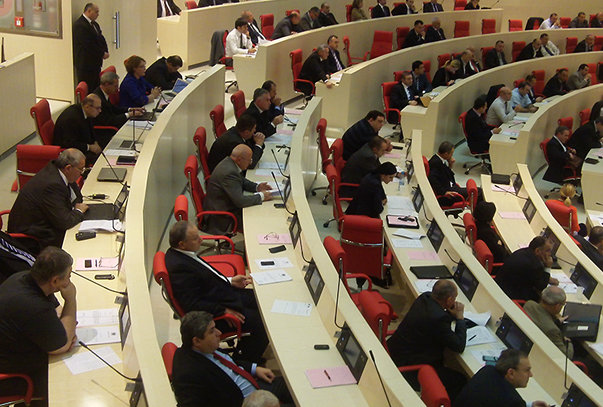In a vote of 115 to 1, the parliament of Georgia outlawed discrimination against homosexuals. The most debated point had been the inclusion of the terms “sexual orientation” and “gender identity.” Orthodox Christian groups had opposed what “believers view” as “non-traditional sexual relations” and “a mortal sin,” according to the head of the Georgian church, Patriarch Ilia II. “In its current form, this legislation provides propaganda and legality to this sin,” the Patriarch warned.
The consideration weighing on the parliament leading to this decision was meeting the conditions for an Association Agreement with the EU, which includes relaxed visa procedures with EU states. The requirements of the agreement include law that includes gender identity and sexuality.
“The question is as follows,” said Speaker Davit Usupashvili, “Either we go towards Europe and recognise that we cannot violate human rights, or we reject those views and stay in Russia. So which is it to be – Russia or Europe? This decision is to be made by parliament and the country. We must all make that choice together.”
Of the benefits of EU partnership, Justice Minister Tea Tsulukiani said, “That is a far greater benefit for our country, including for its territorial integrity, than these unfounded worries about whether certain revisions might cause local objections.”
The Georgian constitution already guarantees equality rights, but has been criticized as lacking mechanisms for enforcing the guarantees. Human Rights activists in Georgia have reported that homophobia is “a grave social trend that results in hate crimes and other discriminatory acts”.
One notable revision was the removal from the legislation of a proposed “equality inspector.” Instead, the Public Defender of Georgia will be responsible for oversight. The ombundsman’s office will attempt first to resolve matters through mediation before proceeding to court redress.
The revision has sparked criticism from some. Giorgi Gotsiridze of the Georgian Young Lawyers’ Association said, “If we pass the law as it now stands, it will be ineffective because actions that are not criminal offences but which are discriminatory will go unpunished.”
Although it has been noted that proving harm caused by discrimination can be difficult, the law gives victims the right to claim compensation.
By Day Blakely Donaldson
